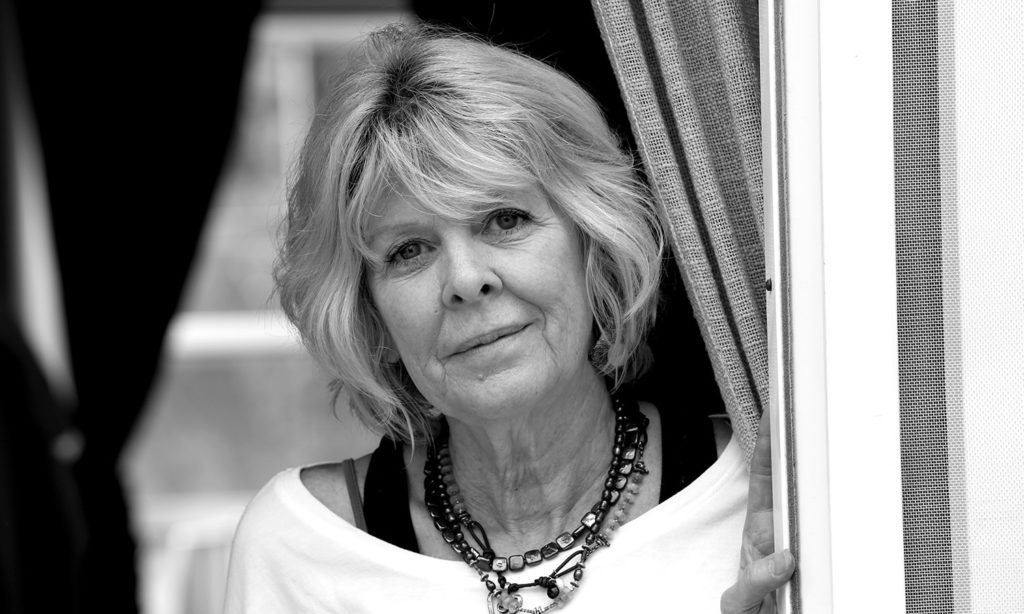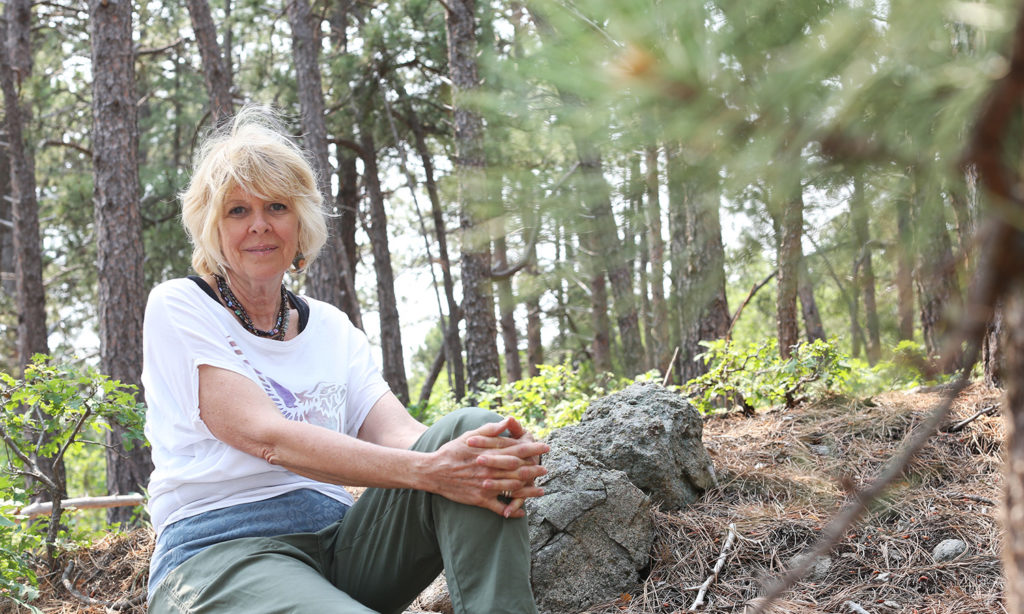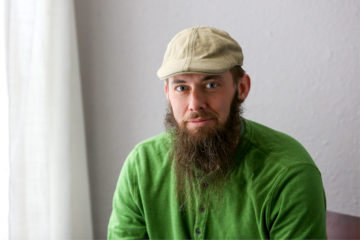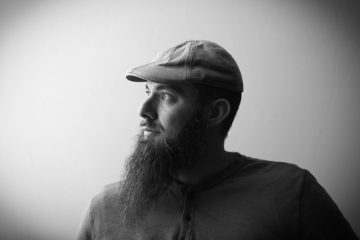Laurel Astor brings a bowl of cut fresh fruit out to her small deck, where we sit surrounded by woods and the whirs of hummingbirds.
It’s the food that gets us started. From its healing place in Laurel’s life to a book she published based on that experience.
We talk about the purpose of life, breaking out of self-limiting patterns, overcoming creative U-turns, and the soul.
Laurel: About 15 years ago I was really sick, like dying kind of sick. I was sitting on the couch, like, “God, help me,” and I got this feeling to go to Barnes & Noble and just pick the first book off the shelf. It was about raw food.
I started eating raw food. I did it for six months and totally healed myself. I felt better than I’d ever felt before in my life. I thought, “Wow, this is what it feels like to be human.”
It’s so hard socially. You go to a restaurant, and it’s fruit or salad, something really boring. Somebody will invite you over for dinner.
So I try to stay at 75 percent, eating fruits and vegetables, nuts and stuff like that, and that way I can go have dinner at people’s houses or go out to eat.
Humanitou: You wrote about this.
Laurel: I have a book. It’s my story, and all my recipes. At the time, I didn’t know anybody who was doing this. All I had was a few books from the library. I started making up my recipes. I love food. It had to taste good and be easy.
I had all my recipes and put them into a simple little thing that I would share at raw-food get-togethers, as I started finding out about more. It turned into a book, called Deliciously Raw.
Humanitou: You and I have had a few conversations now, and you always shine with a warm, positive lightness. Is that who you’ve always been?
Laurel: No, I have not always had that.
I started doing tapping (Emotional Freedom Techniques) and that probably released more past stuff than anything else.
When I was in nursing school, I was really, really miserable. Then I read The Artist’s Way, started doing raw food and artwork, and tapping, and it totally shifted my life.
That was for, maybe, seven or eight years, and then I got in a relationship that was really bad. He was emotionally abusive. He was sabotaging my artwork and everything about me. It took me a while to get myself back again.
I think of life as a creative process. I believe, and I haven’t always lived it, but I believe deep in my heart that we are here to create a great life.
We’re here to create, and we have a higher power that is supporting us. Just knowing that internally, having that experience of it, helps me to relax and know I can create whatever I want.
 Humanitou: It sounds like you’re saying it’s about following our hearts. The range of possibilities for each of us to define “great life” is infinite. By following our hearts, we get to whatever our definition of great life is.
Humanitou: It sounds like you’re saying it’s about following our hearts. The range of possibilities for each of us to define “great life” is infinite. By following our hearts, we get to whatever our definition of great life is.
Laurel: Yes. Exactly. Joseph Campbell said, “Follow your bliss.” It’s the best one sentence for life there is.
I think we get so caught up in is it right, is it wrong? Is it good, is it bad? Is it what I’m supposed to be doing? We get raised with all these programmed thoughts.
I really believe in good energy. Do whatever you need to do to get the good energy flowing, and then things will keep moving.
Humanitou: It takes effort to trust it, sometimes.
Laurel: I learned something that was so valuable. I was in nursing school. I had a boyfriend at the time; we lived together. “Should I stay in nursing school?” It was like a war within myself. I woke up one day and said, I’m going to be an artist. Period.
I got so committed. The trick is you can’t be 99.9 percent committed. You have to be 100 percent committed. That, I think, is the biggest thing.
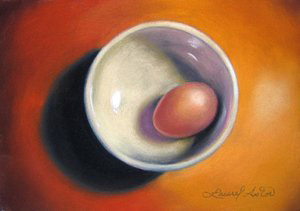 After that, within about a week, my boyfriend says, “You know, just do art.” He took the garage, turned it into a studio, put a little wood stove in it, made it beautiful, put sheetrock on it, painted it, everything. He said, “Just paint for a year and a half. I’ll pay the bills.”
After that, within about a week, my boyfriend says, “You know, just do art.” He took the garage, turned it into a studio, put a little wood stove in it, made it beautiful, put sheetrock on it, painted it, everything. He said, “Just paint for a year and a half. I’ll pay the bills.”
He paid for everything and I got to paint. I’d go out in the morning and light the wood stove in the winter, and paint. It came from that 100 percent commitment. When you make that commitment, everything starts to flow in your direction.
Trust is a practice, to know that you’re going to be taken care of, that life is going to work for you, the universe has your back. It’s a mind shift, and it doesn’t necessarily come over night. It’s almost like you have to reprogram your mind to think that way.
Humanitou: It’s hard to do that. It takes practice.
Laurel: It does. It’s like the mind has these grooves that it goes down almost automatically.
The way I look at it is we have two paths. You’re going down this one path with all those thoughts and you need to figure out a way to get over to this other path: the universe has my back, God wants me to be happy, or Source or whatever you want to call it.
In order to get over to the path that has good energy, you need to keep going in the direction of good energy: What am I going to do today that has me feeling really good, that will keep me on the path of knowing things are going to work out?
If we’re positive and happy, it creates a ripple effect. Keep telling yourself, “God wants me to be happy.” Why would he want anything else? If it’s a he, you know.
Humanitou: There seems to be a lot of fear in those old grooves we live in. It seems like it should be natural to want to do what feels good, yet, we often follow the groove of the shoulds, rather than follow our hearts. How do you cross over?
Laurel: Tapping is what gets me to another place. It has been my bridge a lot of times.
Humanitou: What is it about that?
Laurel: Say you have an event in your life and it produces some kind of trauma or fear. That gets stored in the limbic portion of your brain, in the amygdala.
So anytime you see or hear something similar, it’s going to activate that part of your amygdala. Sometimes we don’t even know it. What tapping does is it slows that amygdala down, and it can reprogram your thoughts about it.
For me, it clears out those old-pattern thoughts that are no longer working. It’s weird: How is tapping on your body doing that? But if you read the story of how it got started, you can see. Those are acupressure points. Tapping realigns your energy system.
Humanitou: Back to the 100 percent commitment. What does 100 percent mean? Is it every waking hour or is there time for enjoying a movie or walk in the woods, and just letting go?
Laurel: It’s more of a feeling. I feel it in my gut, right in my solar plexus. If I say I’m going to do this thing, there’s a knowing that just happens.
Something I’ve noticed is I can go in and paint a $375 painting in two hours and I’m done, so I’ve got the rest of my day. Old patterning would say, “I need to keep working.”
When we’re first getting started with any creative endeavor, it’s kind of like a rocket. You have a booster that gets the rocket into the air, and it takes a lot of energy to get that rocket off the ground. Once it’s off, then it just starts to sail.
I noticed with artwork that it was an organism in and of itself. It was kind of taking me, like, “Do this next.” I just have to follow it.
If you keep other people out of the equation and just do what’s in your heart, other people get it. The people that want your whatever it is will come into that experience.
Humanitou: People say, if you create from your heart, keep at it and authentically communicate with your own voice, your audience will come. But they don’t for everybody. Why?
Laurel: I think the difference is, well, your belief system. If you’re going down the path, thinking, “Is this good enough? Is this OK?” or you’re on the path of, “This is amazing and people are going to love it.”
There’s the two paths. It’s the belief systems we have going in our heads. So get yourself on that path, “I’m the bomb. This is good stuff.”
Humanitou: There’s vulnerability in creating and sharing what we create. It takes such a strong, intentional mindset to not let insecurities get a foothold in there.
You can feel great until the moment you release your creation into the world and then feel a wash of panic come over you.
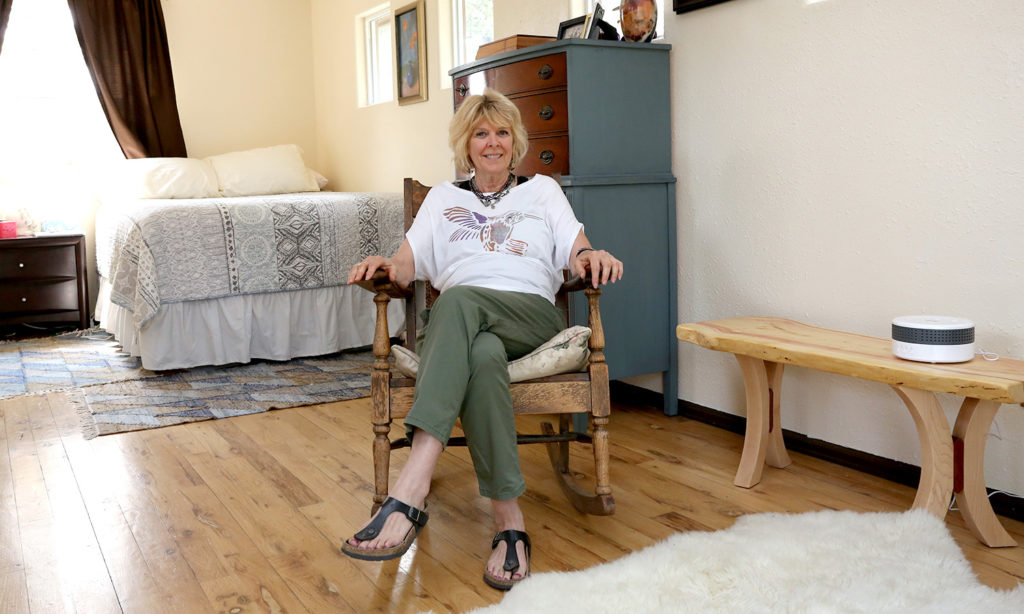 Laurel: It’s the creative U-turn Julia Cameron talks about (in The Artist’s Way). I read that chapter so many times, because that’s what happens. Our minds start to go, “I don’t know, this is scary.”
Laurel: It’s the creative U-turn Julia Cameron talks about (in The Artist’s Way). I read that chapter so many times, because that’s what happens. Our minds start to go, “I don’t know, this is scary.”
The first art festival I did, I almost cancelled. I was putting my heart on the wall: This is me. I was scared to death. But once I did it, I thought, this is the coolest thing I’ve ever done.
Humanitou: It’s unfortunate it feels like such a bold leap to believe in ourselves.
Laurel: Yes. It’s a sad thing. It’s like you say something good about yourself and some people will go, “Oh, how arrogant.” But it’s not arrogant. Arrogant comes from not feeling good about yourself and trying to make yourself into something you’re not.
If you’re really just, like, “Yeah, I’m good at this.” That’s powerful.
Humanitou: A shift here. How would you define the soul?
Laurel: I think it’s the true essence of who we are. I believe in reincarnation. I think the soul has been with us the whole time. I think, if we’re in touch with it, it has guidance.
It has information about what to do. I think it’s the best part of us. It’s the spiritual part of us. It’s been with us forever. It will always be with us, the eternal part of us.
 This (the body) is just our costume we carry around to hold in our soul. But I think our soul always wants to grow, always wants to create, always wants good things for us.
This (the body) is just our costume we carry around to hold in our soul. But I think our soul always wants to grow, always wants to create, always wants good things for us.
Our soul hooks onto a desire and is always leading us in that direction. And we’ve got the mind. The feelings that we have, the negative feelings, are the polarity between what the soul is leading us towards and what our mind is saying we can’t do.
It’s like we always, in the beginning, have this mind that says, “But I can’t.” But once we get into the energy of that creation that our soul is leading us to, then we start to feel good. Feeling good or bad is the indication of how well we are going in that direction.
I think our soul is just always leading us to the best version of ourselves.
